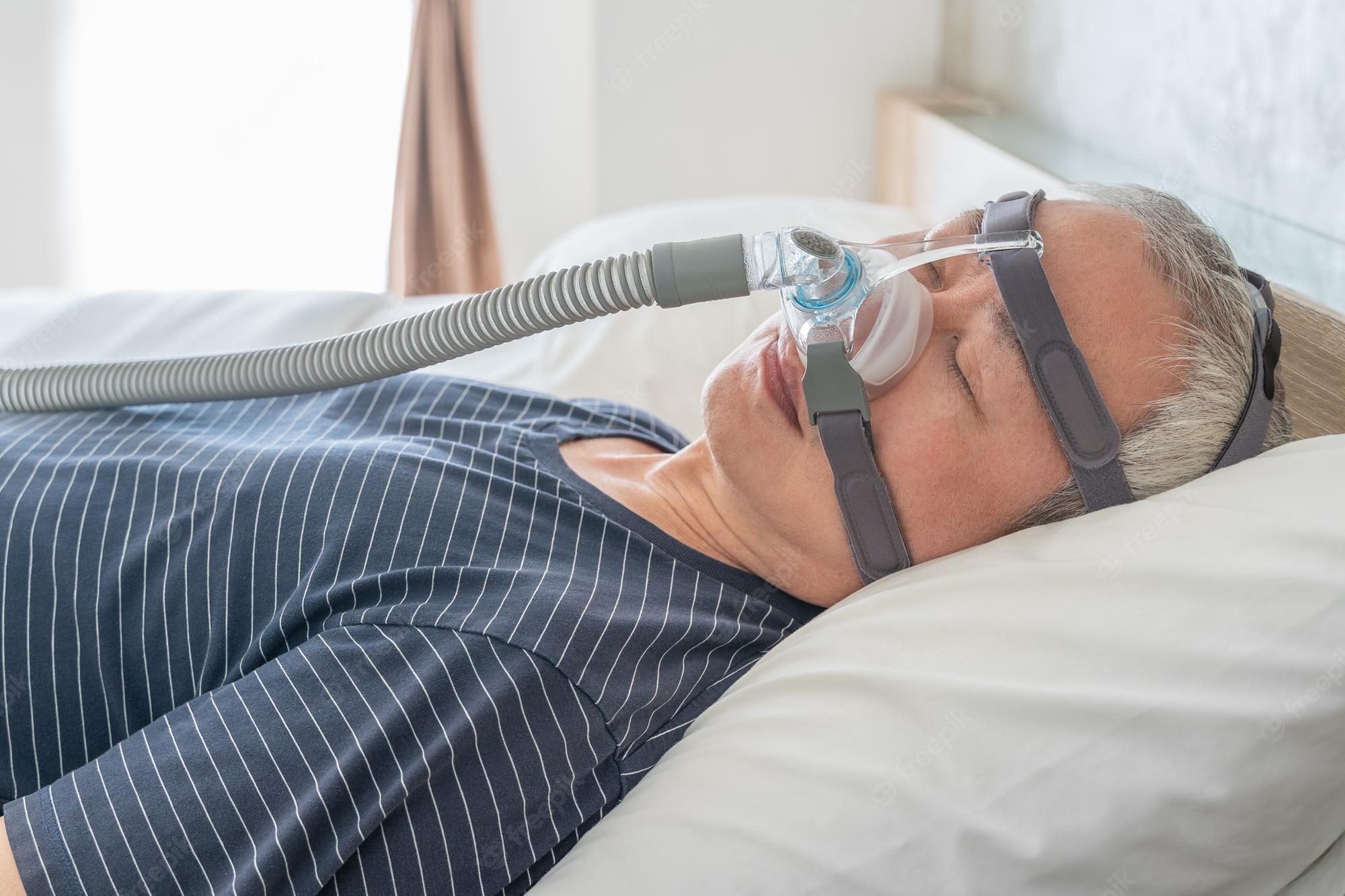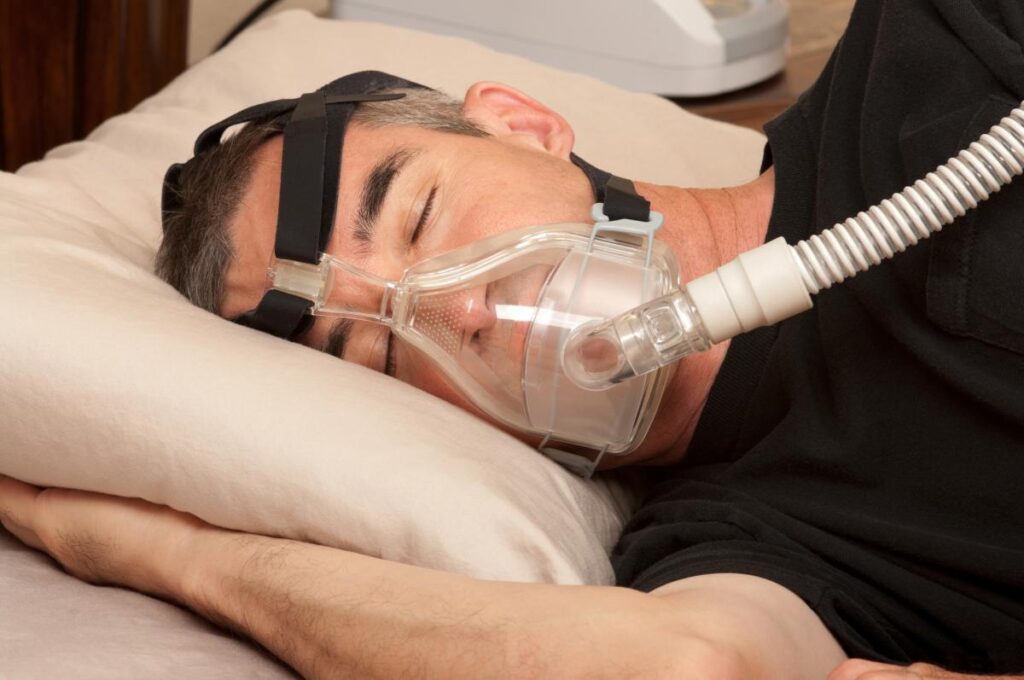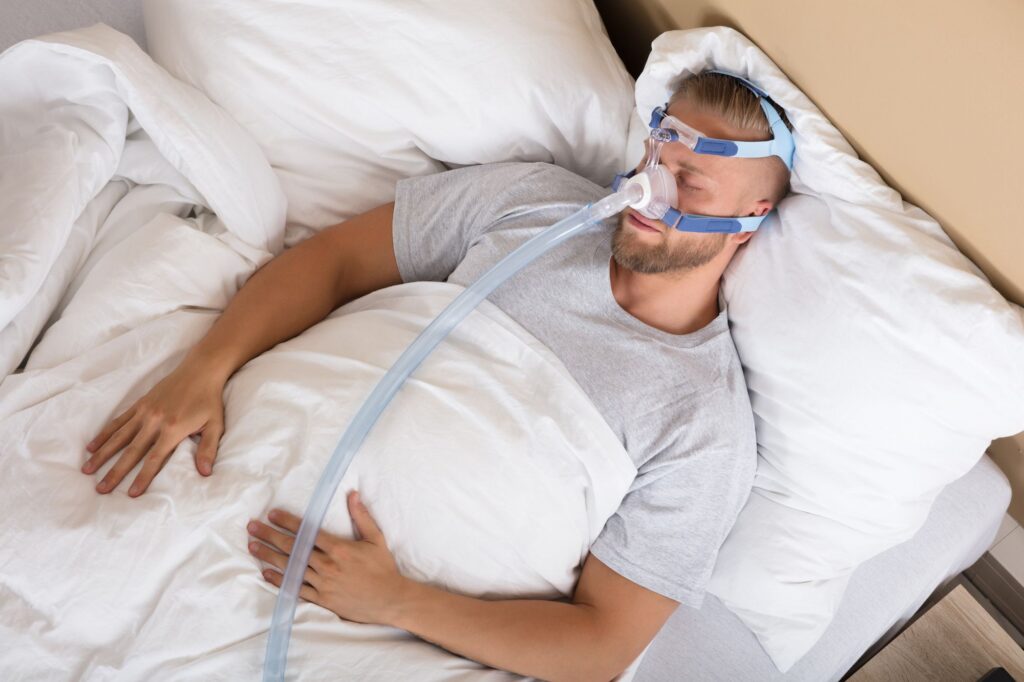How to use your CPAP machines or mask overnight

To become acclimated to CPAP, some effort may be required. If you take off your CPAP machines over the course of the night, you are not receiving the proper treatment. Your insurance won’t start paying for CPAP if you’ve just recently begun using it. However, how can you stop yourself from removing it when you’re sleeping? Look at the alternatives for help below to see how easy it is.
Why is it important if I use my CPAP machines at night?
Effective treatment of sleep apnea
You have a CPAP because it is necessary for the effective treatment of sleep apnea. CPAP machines work by providing your body with the oxygen it needs for a restful night’s sleep on both a physical and emotional level. If you take off your mask while you’re sleeping, you may not be receiving enough oxygen, which might be dangerous for your health. In addition, you can feel worn out when you wake up. You need to wear your mask for around 6 hours to get a complete night’s rest.
Compliance
If you want your insurance provider to cover the cost of your CPAP supplies, you must maintain compliance. Compliance refers to how long you use your equipment at night and if it has an impact on you. Compliance is assured through data monitoring while you use your device.
Medicare must adhere to some of the strictest coverage requirements. A three-month CPAP trial could be covered by Medicare. Medicare will continue to cover CPAP therapy provided your doctor records in your medical record that you meet particular standards for using the equipment and that the treatment is helping you.

You must start recording your CPAP compliance for Medicare 31 days after you initially start using your CPAP equipment but before the 90th day. As a result, it is seen from day 32 to day 89 after ingestion. To maintain compliance, you must use your device for a minimum of four hours per night and on 70% of the nights.
The next step is an evaluation by your doctor to establish whether or not your CPAP has lessened your symptoms. If you are found to be noncompliant, Medicare may not pay for your supplies. However, you can try again by going through the new patient compliance processes. For various private insurance companies, there are various compliance standards.
Inspect the CPAP pressure.
Your CPAP machines may sometimes slide while you sleep if your pressure settings are off. For instance, the pressure might be set too high or too low.
Leaks from high-pressure CPAP machines may irritate and dry up your lips, nose, and eyes. It could also make it challenging to go to sleep or stay asleep. If it’s too low, on the other hand, you may not be able to get enough oxygen when you sleep.
The Solutions: You may lessen CPAP mask leaks by switching to a full face mask, which helps disperse oxygen over a broader area.
Speak with a specialist or your doctor, who can give you advice on whether to change your pressure settings based on data from your CPAP machine on compliance. Never make your own changes to the settings.
Check how well your CPAP machines fit.
If your CPAP machine is set incorrectly, it might be overly big, which could make it easy to take off, or it could be painfully tight, pressing painfully on your face.
The Remedy:
- Adjust the fit of your CPAP equipment. Your CPAP mask should be comfortable, but not so tight that it may pinch or irritate your skin.
- If you need help deciding buy cpap machines which are best for your unique needs, get in contact with us.
- Consider using a different style of CPAP machines.
Skin irritation from CPAP must stop.
Do you wake up with red pressure marks, blisters, or acne on your face? Your CPAP machines may also be bothering you if it is excessively tight, if you have an allergy to silicone, if you have oily skin, or if it is dirty. If your mask is dirty, it might expose your skin to allergies, microorganisms, and dust. Furthermore, if it’s old, it can contain material fractures that are perfect for germ growth.
Use a cloth or CPAP mask liner to provide a soft barrier between your skin and the silicone.
- Use an aloe vera gel mask to lessen skin sensitivity.
- Washing your face before night can reduce oil production.
- Regularly clean your CPAP machines with the Lumin CPAP cleaner.
- Make sure your mask is the right size.
- Change your mask often in line with your replenishment strategy.
Prevent Nasal Congestion, Dryness, and Irritation
Do you wake up with dry or itchy noses? Do you often suffer from allergies or colds that make it difficult to breathe through your nose? Being stuffy might make it harder to fall asleep, especially if you don’t mouth breathe.
The Solutions:
- When using a CPAP, use a humidifier to provide heat and moisture to the air passing through the machine. This will prevent dryness and relieve congestion.
- Use a complete face mask to disperse the air across a wider area.
- Use a CPAP cuddling hose to cover your tube to warm the air passing through it.

You Should Never Feel Claustrophobia
You could take off your CPAP machines while you sleep because you feel claustrophobic. You can experience strapping throughout the night or a tight mask. You could inadvertently grant yourself permission to relax throughout the night.
The Solutions:
- Use your CPAP machines before night and during naps to become used to it.
- Wear your mask when indulging in stress-relieving activities like reading.
- Experiment with new CPAP mask designs that use magnetic clips that are easy to quickly remove.
- Switch to a nasal mask or another mask that has less skin contact.
Sleep apnea is associated with cardiac issues and excessive blood pressure.
Even while sleep apnea might make individuals feel awful, it can be quite harmful to heart health.
The body reacts with a normal stress reaction when a patient frequently stops breathing. Patients may be fatigued after working overtime all night and reacting every few seconds to oxygen deprivation.
We estimate that sleep apnea causes 15% of all high blood pressure cases. Your fight or flight reflex is triggered by sleep apnea, and you are constantly stimulated. You think your life is at danger,” said Wilk. The risk of heart attack, stroke, and congestive heart failure rises with untreated sleep apnea. Additionally, it raises the danger of a sudden death or drowsy driving.
Wilk expressed his surprise at Gaertner’s success with CPAP. He advises all patients to speak with their primary care physicians about sleep problems and possible sleep apnea. They may consult an expert like Green if they want more assistance. Additionally, more training or a better fit may be beneficial if people are having trouble using a CPAP.
CPAP may significantly raise one’s standard of living.
Green believes CPAP devices have a terrible reputation.
But individuals like Patrick make up a large portion of her happiest patients, she said.
Some claim that if they were to flee their houses quickly during a fire, the first item they would take is their CPAP machine.
She said that the CPAP significantly improves their quality of life.
Some folks are concerned about their bedmate. However, the spouse is often overjoyed to stop snoring,” she noted.
Gaertner said that neither he nor his wife had any issues adjusting to the CPAP. He likes his physicians, is ecstatic to be sleeping well, and exhorts anybody having trouble to speak out.
Go see your doctor if you feel like you’re sleeping poorly, he said.
Wilk is assisting Gaertner in finding time for greater exercise and a healthier lifestyle now that he has more energy.
This is altering my way of life. Every night, I had to take sleeping medications. I have a little app on my phone that shows me results, so I don’t require anything. Every night I had a good sleep. I’m much more awake. I’m no longer dragging. I’m taking more afternoon strolls. It’s been fantastic.
Final thoughts
To become acclimated to CPAP, some effort may be required. If you take off your CPAP machines over the course of the night, you are not receiving the proper treatment. Your insurance won’t start paying for CPAP if you’ve just recently begun using it.
